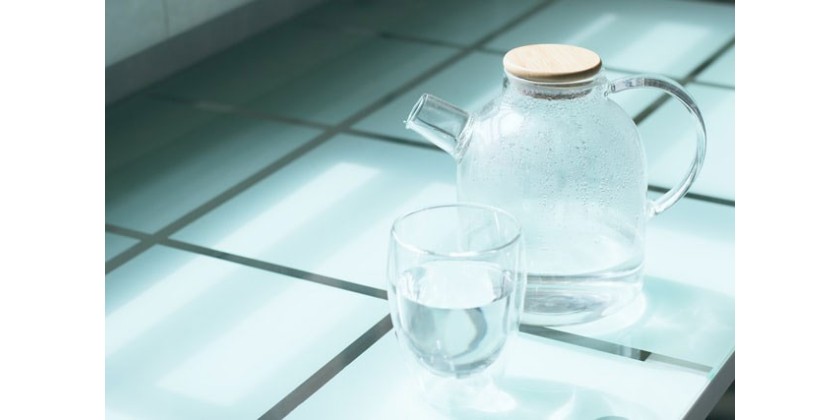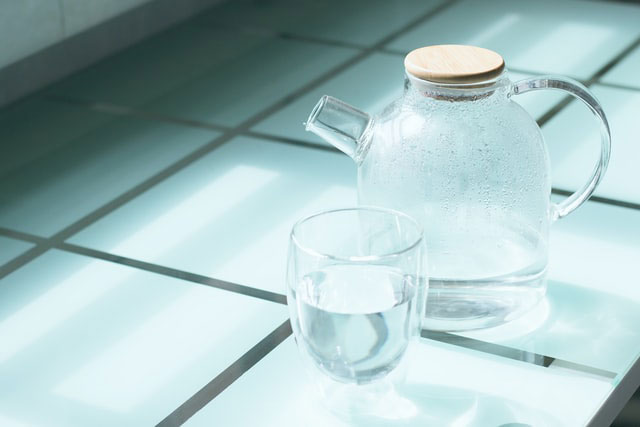
Water is water. If it’s safe to drink, any water should be OK for making tea. Or? Is really any water OK?
If you’ve noticed words “fresh spring water” in our brewing guides, that wasn’t because we wanted to complicate your life. It’s because you should enjoy the tastiest, prettiest and healthiest cup of tea. And yes, the right type of water can do all that.
Let’s see what's the best water for tea.
What types of water can you use for tea?
Not all water is the same. Today, the most common type of water for making tea is tap water, followed by bottled water. Bottled water is usually either filtered tap water or spring water. There’s also distilled and deionized water. And many other types in between.

Is tap water safe for tea?
If you are at the beginning of your tea journey, you may wonder if tap water is safe for tea. Yes, tap water is safe for making tea. However, use it only if you are usually drinking it. Sometimes tap water can have a chlorine or metallic taste. If it’s still safe for drinking, it will be safe for tea too. But don’t expect to get the best cup of tea, though. We’ll come back to this soon.
Why does water matter?
Depending on your location, tap water may be soft or hard. One study suggests that softer water will have a high impact on both sensory experience and antioxidant potential [1] of tea. Another study compared green and black tea infusions made by bottled, tap and deionized water. And again, confirmed that tap water has a less potential to extract catechins from green tea [2].
Therefore, choosing the right water will:
- Give a prettier color to your tea
- Enhance the nutrient content
- Offer a better mouthfeel
- Preserve your teapots
- Enhance the flavor profile of your tea
Let’s look at different water again
While buying a bottled water may look like a safe choice, it can be anything but easy. That’s because all bottled water will be different. Some bottled water is simply a filtered tap water. However, it may be softer than tap water at your home.
Hard water is not the best option for making tea, even if you have good quality water at home. It will leave a lot of residues in your teapot, and it will affect color, texture and flavor of your tea. Very soft water is not great either – so try to choose water that’s somewhere in between with a lower amount of total dissolved solids. This means your water should contain minerals, but not too much to make a dark or murky infusion.
However, some teas, especially darker teas, may benefit from a harder water. For green teas, try to use softer, with less mineral content.
Is distilled water good for tea?
Distilled water is the purest type of water and it’s not good for making tea. It can make your tea taste flatter. Deionized water is similar. It’s purer than spring or tap water, but not as pure as distilled water and may still contain some minerals and impurities. Both will give a lighter color and less personality to your tea.
What does “fresh” in “fresh spring water mean”?
Therefore, both fresh tap and fresh spring water may be the best choice. Fresh spring water by no means implies you should find a natural spring and get your own water. Although this is still a common practice in some countries and areas where water is clean and tested, avoid doing it. You may get much more than a good mineral content – such as bacteria, viruses or different pollutants.
“Fresh” means, don’t use stale water that’s been sitting in your kettle for days. Boiling just the right amount of water for one cup will save energy and offer a better tasting cup.
So if tap water is perfectly fine for making tea, why is everyone always recommending spring water? That’s because most bottled spring water will contain the right amount of minerals and is unlikely to be very soft or very hard.
So which water to choose?
Choose spring water if it comes from a spring and it’s soft or medium hard. Alternatively, invest into a good filter for your tap water that won't remove all minerals, only impurities and chlorine taste. For water that’s too hard, removing minerals may be a good thing, but try to avoid softeners. They may also influence the flavor of your water, so it may not always be a good idea.
Lastly, different teas will require different water, and as we already learned, not all bottles or tap water will be the same. The best way to make sure your tea tastes the best is by experimenting.
If you are buying bottled water, try to choose those that have around 100 ppm total dissolved solids, are pH neutral and come from an actual spring. However, bottled water may be contaminated too and may sometimes have a plastic taste. Whichever you choose, the goal is to enjoy the best possible cup of tea.
Sources:
[1] https://www.sciencedirect.com/science/article/abs/pii/S0308814621012413



Leave a Reply Cancel Reply